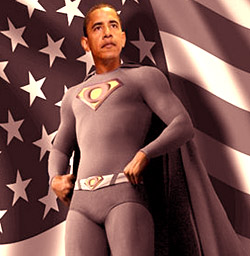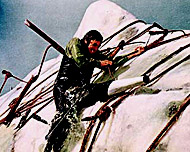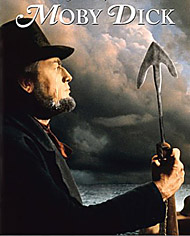 AMERICA'S EMBRACING OF BARACK OBAMA has been a truly phenomenal event which cannot really be explained by any of the standard political criteria. His securing of the nomination of a major political party alone was an amazing accomplishment, yet alone being elected president. Yes, he is a great orator, but so are other politicians. Yes, he opposed the Iraq War from the beginning but so did other politicians.
AMERICA'S EMBRACING OF BARACK OBAMA has been a truly phenomenal event which cannot really be explained by any of the standard political criteria. His securing of the nomination of a major political party alone was an amazing accomplishment, yet alone being elected president. Yes, he is a great orator, but so are other politicians. Yes, he opposed the Iraq War from the beginning but so did other politicians.
Yes, he is young, handsome, temperamentally composed, highly intelligent and highly educated but so are others. He is also new and relatively untainted by Washington politics but he is not alone is this category either.
However, when the fact that he is African-American is added to the mix, something extraordinary happens. America is forced to confront a transcendent moment in its history. It is forced to confront its own alienation from part of itself and from the rest of the world. It is forced to confront Other, forced to confront that which is very different from what it has identified as itself to this point.
Of course, politics is always about more than it seems to be. It usually, at bottom, deals with socially existential issues, although not always consciously so. But this moment in American politics really is unique – and perhaps our greatest novel, Melville’s Moby-Dick, can be useful in trying to understand it.
Melville believed that all Americans were "isolatoes," autonomous individuals limited by our cultural ideology to be alone and cut off from each other, without real community.
In
Moby-Dick, Ishmael and Ahab, the two principal characters, are brought up against Other in the form of the great whale. Ahab’s confrontation with
Moby-Dick is catastrophic but Ishmael’s is not because he had earlier embraced Other in the form of Queequeg, the exotic South Sea Islander who became his friend. He was initially frightened of and repulsed by Queequeg but Ishmael overcomes his initial reaction and successfully tries to relate to that which seems to be so very different. Ishmael thinks to himself, “ What’s all this fuss I have been making…the man’s a human being just as I am; he has as much reason to fear me as I have to be afraid of him.”
For Ahab, however, Moby-Dick is stark, unbridgeable Other. For Ahab, Moby-Dick is that “pasteboard mask” that one must punch through to assault an even greater, indefinable other side. Ahab truly believes he is up against ultimate Other. Ahab represents the quintessential American isolated Self up against his fellows and up against the universe. Naturally, cast in these terms, the American individual can only meet with disaster, as does the Pequod, Melville’s metaphor for the United States.
Melville believed that all Americans were "isolatoes," autonomous individuals limited by our cultural ideology to be alone and cut off from each other, without real community. He believed that we could either be like Ahab and wage war upon Other, the non-Self (each other and the rest of the world) or be like Ishmael and try to bridge the gap between Self and Other. In the end, Ahab dies and Ishmael lives so, for Melville, survival itself depends on at least the attempt at transcendence. Melville believed that if Americans did not overcome their isolation from each other and from the world, the nation, the Pequod, would be doomed in one form or another.
 Even though blacks have been in America since 1619 and thus are more American than most whites, they have always been defined in American culture as ultimately Other because they have always been in a minority position and majorities everywhere have always taken it upon themselves to define what other is, i.e. that which is not the norm. The history of slavery and segregation and racism in America attests to this. And our highly individualist, Hobbesian culture has always pitted every American against every other in a struggle for survival in the kind of world described in the contemporary novels of Cormac McCarthy.
Even though blacks have been in America since 1619 and thus are more American than most whites, they have always been defined in American culture as ultimately Other because they have always been in a minority position and majorities everywhere have always taken it upon themselves to define what other is, i.e. that which is not the norm. The history of slavery and segregation and racism in America attests to this. And our highly individualist, Hobbesian culture has always pitted every American against every other in a struggle for survival in the kind of world described in the contemporary novels of Cormac McCarthy.
But black Americans have been ultimately Other and perhaps the scapegoat for so much of how we relate to each other. If they are the ultimate Other, if we are so different from them, then there can’t be that much separating us – but of course there is in our Hobbesian society. By being denied the status of person, of autonomous individual, with full rights under the law, for so long, African-Americans were utilized to create a fiction that had permitted the charade of non-black community and were perhaps the recipients of projected anger when this “community” turned out not to be so communal.
Thus, African-Americans have been the ultimate, societal Other for most Americans as Moby-Dick was the ultimate, cosmic Other for Ahab. But Ishmael did not draw such a stark division with the whale or with the dark skinned Queequeg or with the world. Ishmael’s attitude was one of openness to growth, to learning, to transcendence. Ishmael, after all, wants to go to sea, in the first place, to learn, to understand the world. For him, Moby-Dick is just a whale, not some symbol of evil.
He is compelling voters to get to the heart of the American ontological experience, to get to what it means for Americans to relate to each other and to the world.
And this came out of Ishmael’s own inner need. He, like Ahab, was also a quintessential American individual. Ishmael begins the story alone and ends it alone. And he, too, like Ahab, had experienced inner psychic anguish. Ishmael wanted to go to sea to “drive off the spleen,” because there was a “damp, drizzly November in his soul,” and because he was “pausing before coffin warehouses and bringing up the rear of every funeral.” He said he wanted to go out into the street “methodically knocking people’s hats off.” Too much aloneness in America was starting to do to him what it had done to Ahab but Ishmael stopped, corrected himself and tried to overcome the problem of his aloneness, not by trying to destroy that which confronts him with his aloneness, i.e. Other, but by trying to bridge the gap between Self and Other, thereby attempting to assuage, to transcend his aloneness. Both these men were on a dark, psychic edge, but each had a different response to his problem.
America, too, in 2008, might be in a state of psychic trauma because of 9-11, the Iraq War, seemingly collapsing financial and economic systems, climate change and the sense of fundamental disconnection felt by many Americans with regard to the rest of the world. The pseudo security of classic American international isolationism, of a vaunted American exceptionalism, no longer seems to be satisfactory to many. Americans feel overwhelmed, besieged, frightened by their situation in the world. We seem to be pitted against everything that is out there – hostile nations, former allies, people who are willing to commit suicide to kill us - even nature itself in the form of global warming.
So, analytically, we can go one of two ways. We can lash out harder against the world and try to destroy Other as President Bush (Ahab?) did in Iraq or we could try a more balanced, dialogic, interrelational approach to the world as Obama (Ishmael/Queequeg?) suggests, particularly in his Berlin speech. Without necessarily articulating this latter choice clearly, on all of its conceptual levels, most of the American electorate, having seen the disastrous results of the Bush-Ahab approach, is now willing to try Obama-Ishmael.
 Obama, in his own person, represents, for many, some attractive, black-white, American-international hybrid in a way that no other politician has ever done before. His African-Indonesian-Hawaiian-Kansan-Chicagoan persona makes him exotic and foreign and yet very American. He was, after all, a very American (and very moderate) Harvard Law Review editor. The attraction to him, hence, is more than just the fact that he is the first serious black presidential contender. It is much deeper. He is compelling voters to get to the heart of the American ontological experience, to get to what it means for Americans to relate to each other and to the world. His soaring rhetoric and his impressive communication skills make it possible for him to give subconscious expression to some of America’s deepest concerns. Many are attracted to him for reasons they do not fully understand because he is tapping into relational concerns that Americans have with the world and with their fellow citizens on the deepest psychic, paradigmatic level.
Obama, in his own person, represents, for many, some attractive, black-white, American-international hybrid in a way that no other politician has ever done before. His African-Indonesian-Hawaiian-Kansan-Chicagoan persona makes him exotic and foreign and yet very American. He was, after all, a very American (and very moderate) Harvard Law Review editor. The attraction to him, hence, is more than just the fact that he is the first serious black presidential contender. It is much deeper. He is compelling voters to get to the heart of the American ontological experience, to get to what it means for Americans to relate to each other and to the world. His soaring rhetoric and his impressive communication skills make it possible for him to give subconscious expression to some of America’s deepest concerns. Many are attracted to him for reasons they do not fully understand because he is tapping into relational concerns that Americans have with the world and with their fellow citizens on the deepest psychic, paradigmatic level.
But if it is Obama’s difference that makes him attractive to many, it is also that which gives his political opponents ammunition against him. Both the Hillary Clinton and McCain campaigns stressed Obama’s otherness, his not quite being like the rest of us. Amongst other things, they have charged him with “distributionist,” socialist leanings, with elitism, aloofness, intellectualism and with being a mere celebrity, and they have criticized him for a presumed inability to understand the average, blue collar American, the “real” American, Joe the plumber. By trying to so define him, Obama’s opponents have tapped into the reverse side of the social ontology that has attracted so many Americans to him. They have tried to make him into a stark Other rather than do what many Americans have done, perhaps subconsciously i.e. see his “otherness” as a bridge to a larger Other. At least for now, at the beginning of his presidency, the negative critique hasn’t worked.
There is, instead, a palpable sense that, in America, we have reached a possible crossroads, however temporary it may be, in terms of how we relate to each other and to the world. Perhaps, more than anything else, it is the shock of 9-11 that has, to an extent, brought these visceral anxieties to the surface – problems that we always knew were there but did not know how to address before or even how to seriously acknowledge, given our cultural assumption that atomistic individualism was all we would ever need.
In fine, then, just as Moby-Dick is not just a story about a whaling trip but an exploration of American ontological anguish, so the 2008 election was more than just a referendum on healthcare and coastal oil drilling. It provided an opportunity to examine whether a majority of Americans, via a presidential choice, was prepared to see the world, and other Americans, differently than before albeit still within our cultural model. It provided an opportunity to make a readjustment in our individualist paradigm which is so much a part of our cultural DNA.
In effect, then, this presidential election has cast a spotlight on the underlying, conflictual currents of the American mindset, something our greatest writers have always been trying to explain to us, even if we did not always want to listen.

